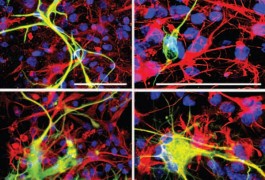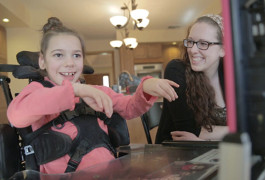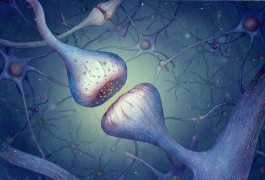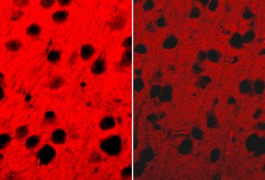Leaky filter leads to motion perception problem in autism
Children with autism detect certain kinds of motion better than their peers do, but don’t tune out distracting visuals.

Children with autism detect certain kinds of motion better than their peers do, but don’t tune out distracting visuals.

The first in-depth look at people with alterations in the 1q21.1 chromosomal region reveals a range of features, from problems with fine motor skills to autism.

Star-shaped brain cells called astrocytes weave a web of proteins that derails brain development in the autism-like Costello syndrome. The findings add to mounting evidence that brain cells other than neurons contribute to autism.

Older women and men are at high risk of having a child with autism — and so are teenage girls and parents whose age differs by at least a decade, according to a multinational study of more than 5 million children.

A new service provides personalized voices for people who use speech-generating devices. The service, called VocaliD, could help the nearly 25 percent of children with autism who speak few to no words.

People with autism are twice as likely to carry alterations in genes that regulate the circadian clock, or the body’s sleep-wake cycle as those without the disorder. The findings may help explain why most children with autism have trouble with sleep.

More than 10 percent of people carry deletions or duplications of DNA that diminish their intellectual capacity. The findings, based on a large study of an Estonian population, suggest that the bigger the mutation, the more severe a person’s cognitive deficits.

Researchers have discovered an enzyme that lowers brain levels of FMRP, the protein missing in people with fragile X syndrome. Blocking the enzyme may ease fragile X symptoms in people with the disorder who have low levels of FMRP and mild symptoms.

An autism-linked mutation in the SHANK3 gene alters the protein skeleton of mouse neurons. Repairing the scaffold eases the animals’ social deficits.

Although increasing numbers of people are receiving an autism diagnosis, the proportion of the population with autism symptoms has remained steady. This finding, from a study of more than 1 million Swedish children, backs the theory that autism’s rise stems from greater awareness of the disorder.